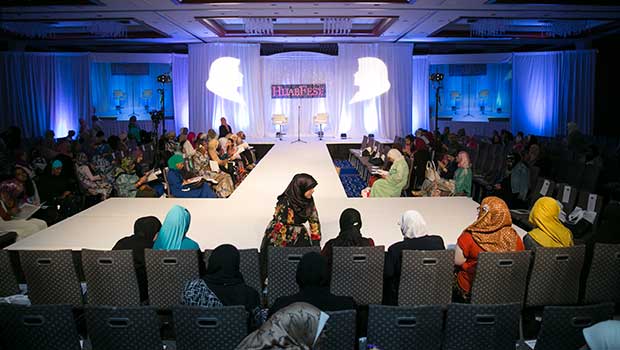As the use of alternative media grows, particularly among the younger generation, the print media has seen declining rates of readership. Concern about this trend impelled The World Association of Newspapers to commission a survey of youth media consumption. The survey spanned the globe and ten young people from ten countries (United States, the United Kingdom, Serbia, Sweden, Spain, Lebanon, South Africa, Colombia, the Philippines, and Japan) were recruited to keep a record of their media habits and document their views and attitudes about news in general and, in particular, their use of newspapers to get news. The results have been published in a report called Youth Media DNA — Decoding Youth as News & Information Consumers.
Information from Various Sources
The aim of The World Association of Newspapers was, of course, to explore ways to increase newspaper readership among young people. The survey, however, provides interesting general information about youth preferences in their consumption of news. Not surprisingly, the survey shows that youth seek out information from a variety of sources and many feel that they cannot rely on one source only, even if they view that source as one of their preferences, as reliable, and as authoritative. Some indicated that the news source they utilized in the morning is likely to be a newspaper, but that online sources are much more accessible throughout the day while at school or work. TV news was a preferred option in the evening.
Choosing Interactive Over Passive Media
Participants also revealed that young people are more inclined to interactive media rather than the passive forms such as TV, radio, or newspapers. The form most noted to be of declining interest was newspapers whereas the traditional forms of passive media such as TV and radio remain a viable and important part of their media regimen. While they acknowledge a keen interest in “citizen journalism” via blogs, videos, discussion boards, etc., they nonetheless view the more traditional media as more professional in formatting and more trustworthy as a source of news.
Respecting Traditional Sources
One reason given as to why they incline less to traditional media such as newspapers is that the Internet, cell phones, MP3 players and other new media are occupying more and more of their available time. Interestingly, they also convey the desire to have more time to spend reading newspapers and express respect of that and other traditional sources of news and information. Those who read online newspapers convey satisfaction with the interactive format (as compared to print newspapers) and especially like the enhanced experience of the discussion boards or being able to pursue more information by clicking on hyperlinks. Younger participants focused more on “the big headlines.” The older youth were curious to investigate the nuances found in detail and debate around the issues. Across all lines of gender, age, and country, the participants almost unanimously ignored the business section.
Big Picture and Staying Well-Informed
The common view that young people are disinterested in what is going on in the world is disputed by survey participants. They indicated an interest in not only local and national coverage but also international news. Highlighting the increased awareness of young people living in a world of telecommunications overdrive, participants expressed realization of the connectivity among local, national, and international events and issues. Current events in their own country or another halfway across the world are not seen by them in isolation. The increased awareness is buttressed by their desire to be well-informed, not just as an end in itself but also as a way of engaging with family and friends in discussions about current events. It is worth noting that many considered their communication with friends through social networking as a prime source for news and information. They indicated that being well-informed contributes to their success in school and/or work. Nonetheless, many convey that given the time-constraints of their daily schedules, they find it a challenge to really feel well-informed and up-to-date about current events and happenings around the world. Many participants pointed out that their social networks extend far beyond the immediate circle of local friends and family and that they have engaged with peers around the world, cultivating associations and friendships that involve discussion and debate of issues and sharing of ideas.
Decoding the Survey’s Implications
None of the findings of The World Association of Newspapers survey is very surprising. Yet it has some implications that we as Muslims might find noteworthy. The lynchpin of the survey’s disclosures is that the youth are much more familiar, comfortable, and inclined to interactive media. They have grown up in a social environment that fosters engagement with others through the world-wide web of human connectivity. They find the passive experience of print media less appealing. This could be seen as a negative if we focus on the aspect of print media that includes books and other scholastic texts. These have been the mainstays of the seeking of knowledge throughout history and certainly throughout Islamic history. The capacity and willingness to devote time and energy to acquire knowledge requires a discipline and single-minded focus that could be seen as contrariwise to the peripatetic nature of the Internet and social media. When using electronic media, there is so much to choose from at any given moment that one might jump from one attention-grabber to another, never really getting into a deeper exploration or analysis of the subject matter; there is the constant distraction of Facebook, Twitter, instant messaging, email, etc. that can pull one’s focus and concentration away; the overabundance of information can make one feel overwhelmed and unable to “catch up” with what’s happening even in one’s own limited social circle let alone in the widening domains of local, regional, and global activity and occurrence.
The Upside: Solidarity & Activism
On the other hand, the very interactive nature of electronic media holds within it an upside potential. Americans have often fallen into the clutches of passivity, content to move along in their everyday lives with routines that focus on work and recreation, raising a family, striving for a modicum of success. That’s all well and good. But beyond survival concerns and necessities and the “pursuit of the American dream,” many have given little thought to what it means to be members of a state or political community. The practice of citizenship requires participation in the affairs of governing, in supporting the common good, and cultivating attitudes and behaviors that recognize fully the importance of interdependence. The democratic process necessitates getting involved, engaging in social, economic, and political discussion, debate, and decision-making. Americans live in and benefit from a democracy. Yet it has been all too easy for to become complacent.
And then there are the all too many nations in the world that are hostage to brutal dictatorships. Passivity in those societies is more understandable as political activism most often brings censure, imprisonment, or death. Yet we have all witnessed the tremendous upheavals taking place in the Middle East nations and find promise in the vision of ordinary citizens rising up to claim their human and civil rights; refusing to any longer accept the denial of social justice, equality of opportunity, and the basic dignity of living standards that don’t fall to ruin due to predatory wealth and dictatorial power. The activism taking place across the globe, including the Occupy Wall Street demonstrations, reveals once again the power of solidarity and activism to push through the self-imposed constraints of complacency and the state-imposed suppression of rights that breeds passivity and resignation.
Bringing About Change With Hand, Tongue, and Heart
There is a hadeeth that clearly indicates the importance of taking action in the world to create conditions of goodness. On the authority of Abu Saeed al-Khudri (may Allah be pleased with him), who said: “I heard the Messenger of Allah say, ‘Whoever of you sees an evil must change it with his hand. If he is not able to do so, then with his tongue. And if he is not able to do so, then with his heart. And that is the slightest of faith’ ” (Muslim). The best option is taking action, to change adverse conditions “with one’s hand.” The second best option is “with one’s tongue.”
All the dialoguing and debate that the youth engage in via electronic and particularly social media has predisposed them, at the very least, to changing conditions with their tongues (speaking, writing, dialoguing, debating); and, at best, being active and when necessary taking to the streets when governments, corporations, and other entrenched interests defy the right of every man, woman, and child on this planet to food, shelter, education, opportunity to earn a living, pursuit of happiness, and the experience of dignity and hope.
Youth, Balance, and Change
Optimism is derived from Latin roots meaning “the greatest good” and “the best.” And it is related to “optio” meaning “choice.” Let’s be optimistic and choose to believe that the greatest good can come from the trends inaugurated by electronic media and social networking. Let us believe that the youth will more and more take on the responsibilities of active citizenship, moving beyond the disheartening conditions of complacency or passivity or desperate resignation.
We can pray to Allah SWT to facilitate this eventuality. And also we must do our part to make sure the youth understand and institute balance so that they base their activism on knowledge, which must be acquired through effort and discipline, and not just on the youthful passion and energy that is their natural condition. Infuse that balanced endeavor with spiritual qualities such as piety and morality, and we might achieve a new world order, not one conceived by the elitist powers, but one birthed by a determined and right-minded humanity.





